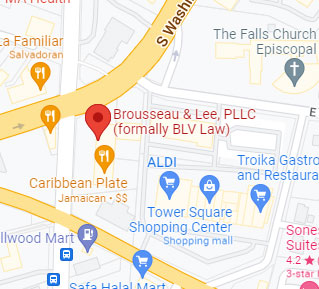Foreign nationals may be placed in removal proceedings before an Immigration Court where they will be required to appear for an opportunity to seek relief from removal. Depending on the individual circumstances of your case, you may be eligible to prevent your removal from the United States.
What Is The Difference Between Deportation And Removal? And Why Are There Two Different Terms?
The word “deportation” was scrapped from the INA (Immigration Nationality Act) and changed to removal. Deportation is the commonplace term to describe what happens to people if they become removable (e.g., enter illegally, commit certain criminal offenses, etc.), exhaust their rights to remain legally, and thereafter deemed enforcement priorities by ICE.
The now uniform removal proceedings are for people who have already been living in the country and have done something that makes them ineligible to stay. This can include things like committing a crime or not having proper documentation.
Before 1997, there were two separate processes: one for people who were trying to enter the country without the necessary documentation, called exclusion proceedings; the other for individuals who later become deportable after entry, called deportation proceedings.
What Is The Most Common Reason For Deportation Or Removal From The United States?
CBP (Customs & Border Protection) is responsible for apprehending and promptly removing those who enter the country illegally. This process is known as “expedited removal.” However, if an individual can establish a credible fear of persecution in their home country, they will be allowed into the United States to pursue their asylum claim before an immigration judge in removal proceedings.
People who come to the United States legally on tourist visas, student visas, or green cards are not safe from being detained and removed from the country if they break certain laws.
This means that even individuals who have been legally admitted or paroled into the United States can still be pursued for removal proceedings if they happen to be implicated in any sort of criminal activity which renders them removable or otherwise enter into unlawful status.
What Happens First When Someone Is In The Process Of Being Deported Or Removed?
Everyone has the right to procedural due process. This includes the right to a fair and impartial hearing in removal proceedings, which are court hearings that determine whether or not a person will be ordered removed or deported from the country, or instead, are granted relief and allowed to remain in the country.
The Enforcement and Removal Operations (ERO) division of ICE are responsible for carrying out deportations and detentions. In some cases, ERO may offer individuals with outstanding removal orders the opportunity to “self-deport”. This means that they would need to return within a specified time frame with travel arrangements and a flight itinerary.
More Information
- Deportation Cases: Your Rights And Canceling Removal
- Essential Information For Navigating Deportation Cases
For more information on Immigration Law in Virginia and the D.C. metro area, an initial consultation is your next best step. Get the information and legal answers you are seeking by calling (703) 249-9055 today.

Call Now To Schedule A Consultation (703) 249-9055
